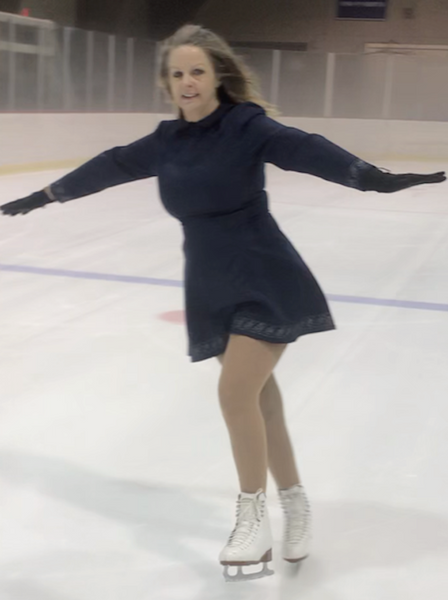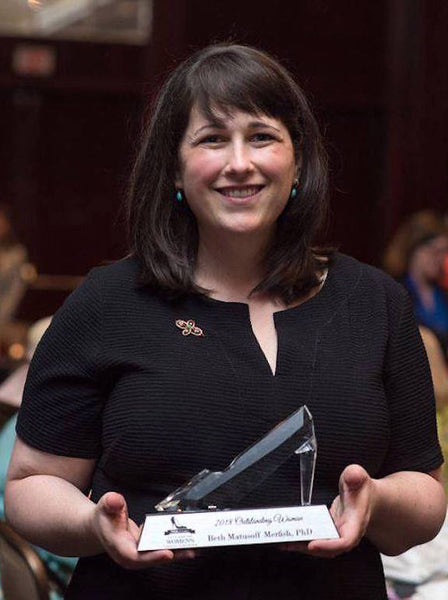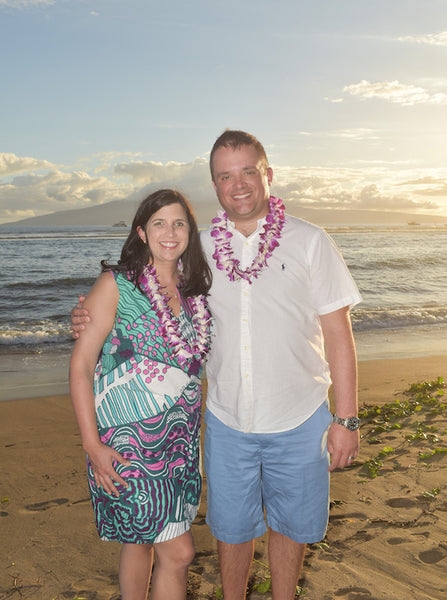Interview: Leslie Rasmussen

Leslie is currently living in Cincinnati, Ohio with her awesome daughter, husband, and dog. She grew up on the coast of Texas and enjoys long walks on the beach, though that is next to impossible in southern Ohio. Instead, she just picks beach destinations anytime someone asks where she wants to go for vacation. Winter attire in south Texas included flip flops and the occasional sweatshirt, and while she does miss warmer weather, she does enjoy the seasons the Midwest has to offer. Leslie is an assistant professor of communication at private university and totally digs teaching college students. She researches cool things like social media celebrities, activism, and mobilizing publics, and loves a good crisis communication case.
Tell us a bit about yourself: how would you describe yourself and your life in a quick snapshot?
I am from South Texas and currently live in Cincinnati, Ohio where I’m an Assistant Professor of Communications at Xavier University. I grew up 10 minutes from the ocean, and I firmly believe a body water nearby is just good for the soul.
I try hard to focus on the positive and not let myself go down a rabbit hole on things. I believe in the oxford comma.
I love spending with time with my daughter, who is 4 years old, and with my husband, Mike. Trying to enjoy life and being engaged in it. Focus on this.
If you had to describe yourself using three adjectives, what would they be?
Optimistic, fun, and happy
When you were a child, what did you want to be when you grew up?
I wanted to be veterinarian or a lawyer. Coincidently, I briefly studied both in college.
What was your very first job?
I worked at the Sutherlands Hardware Store throughout high school and my college summers. I started as a cashier and by my last summer there, I had worked in about every department. I got really good at looking at a piece of wood and knowing its dimensions. I would say, “Oh, that’s a 2 x 8 x 4.”
What do you do to occupy your time: work, family, community?
Right now during the summer months, I have a lot of time with my daughter. We go to the park and splash pads around town. There is always a lego town under construction in my living room. The time I spend on work consists of researching and trying to find things that are useful and important for my classes and articles.
During the academic year, I am teaching classes, researching, and spending time with my family. That’s certainly the first priority. When I’m at work, I try to focus on getting my work done.
I work at a Jesuit university so there is a service element to my work, so I do a lot of partnerships with non-profits in Cincinnati.
Throughout the year, we try to be intentional and spend time as a family. Sometimes it is just putting the cell phones away and sitting down for dinner. Or, simple things, like coming home from work and making dinner with my daughter.
What are the hardest decisions you’ve had to make?
Two really stick out:
First, I fell in love with a kid from Iowa and I’m a Texan. It was an incredibly hard decision to leave Texas and move to Iowa so that we could be together. I left the south and warm weather. It was a life changing decision. It helped that my closeknit family encouraged me to follow my heart.
Second, a couple of years after we got married. We had a house, two cars, and secure, good jobs. I was teaching at a community college, but you are limited by how much you can do there, so I started contemplating getting my PhD. It took a lot of courage, and I overcame a lot of self-doubt. Mike was supportive and my biggest cheerleader. We sold all our furniture, one car, and our house. We moved clear across the country, and we lived on a meager salary of student teaching so I could pursue my PhD. We were in it together. Mike really encouraged me and told me that I could do it.
Tell us about any mentors or figures that are crucial to how you see the world or what you’ve chosen to do.
My doctorate mentor played a huge influence personally and professionally. In academia, there can be a stigma around having a family and being an academic. A lot of female professors don’t have children or only have one child. My doctorate mentor openly talked about starting a family and said, “Do it right away. Don’t wait and do what I did. There is so much pressure within academia to give up being a mother to be a professor.” She waited until she was 42 and had twins. She encouraged me to create my own definition of success. In this very male driven profession, people are still learning to work with women who are having babies. My mentor was and still is a very prolific researcher in the field and was a daily supporter. She made me see that so what, if you have one less publication because you want to have a family, you define what your success as an academic look like. She was an important influence on how I shaped my personal life with my professional.
Another one, is my mother. My mother lost her husband, my father, when I was two years old. She grew up as one of the oldest in a large Mexican family. Her father made her drop out of high school in 10th grade so that she could work and help support the family. She was hell-bent on me getting an education if that is what I wanted. She worked for 35 years at a grocery store and delayed retiring to help pay for my college degrees. I have no undergrad debt because she helped me out. She is the hardest working person that I know. My drive and hard work comes from my mother, and I am proud of that part of me.
Oh yes, and Britney Spears. I was a business major in college, and I went home for the summer and took some courses at the community college in town with a friend of mine. One of the classes we took was “Intro to Mass Communication.” Britney Spears MTV Video Music Awards performance of “Oops I did it again” had just been on. We spent an entire class discussing the cultural implications of Britney Spears. I turned to my friend and said, “Wow, you can do a job talking about Britney Spears.” Before that, I thought I would get a business degree and go on to Law school. After that class, I found my passion and changed my major to communication.
What do you consider to be your greatest success this far?
I am very self-deprecating so it is very difficult to answer this question. I am very proud of what I have done. I was a first generation college graduate. I cannot remember a time when I didn’t have a job in college. I overcame a lot. Three degrees and multiple professional successes later, I feel like I have had a lot of successes.
What has been your greatest failure and what did you learn from it?
I don’t know if this is my greatest failure. It certainly felt like a failure at the time. Part of my job is to research and be published. I had been fortunate to that point to have have any work rejected. When I had my first work rejected, it felt like the biggest failure.
In academia, we say people have “imposter syndrome.” We have these fancy degrees, and we are called on as experts on things. Especially those younger scholars like myself, we get this “imposter syndrome.” People think you should know everything, just because you are a professor and do a lot of research on specific subjects. When my publication was rejected, I felt like I was not good enough and I didn’t know enough.
It makes you feel bad about yourself. I had to learn to stop this “imposter syndrome.” I am always learning and striving to be an expert on my area of expertise.
From each rejection, I have learned to focus on the constructive. Okay, I can feel like a failure for a minute, but don’t go down that rabbit hole. Look at what is constructive and improve your work. I always want to be learning.
Where do you see yourself in 15 to 20 years?
My ultimate goal is to be happy both professionally and personally. I know I absolutely love high education, so I imagine that I will be teaching and researching. But in 15-20 years, who knows, maybe I would be ready for the more administrative side of higher ed.
At the same time, I believe my family will be happy. We will be traveling and engaged in things together—whatever that may look like.
What is the top item on your bucket list – something you’d love to do but haven’t yet?
I haven’t left the country except for Canada or Mexico. Spain is on the top of my list. I want see things and see the world. Hopefully that happens sooner rather than later.
Describe your personal style: how does it reflect your day to day and your values?
I am pretty casual and laidback. I want to be comfortable and relaxed in whatever I’m doing whether it is in the classroom, at a conference, or outside with my daughter. I’m not terribly worried about trends.
I told myself that I would never wear a suit to teach a class. I had professors like that when I was studying business, and it was so intimidating.
If you ran into your 18-year old self, what advice would you give her?
Oh Lord. I would tell myself to worry less about other people’s opinions and worry more about my own opinion. Be confident in my opinions and thoughts. Creating your own definition of success in whatever you want to pursue.
Leave a comment
Comments will be approved before showing up.
Also in Voices

Edition 4: The Vintage Ice Skating Dress


